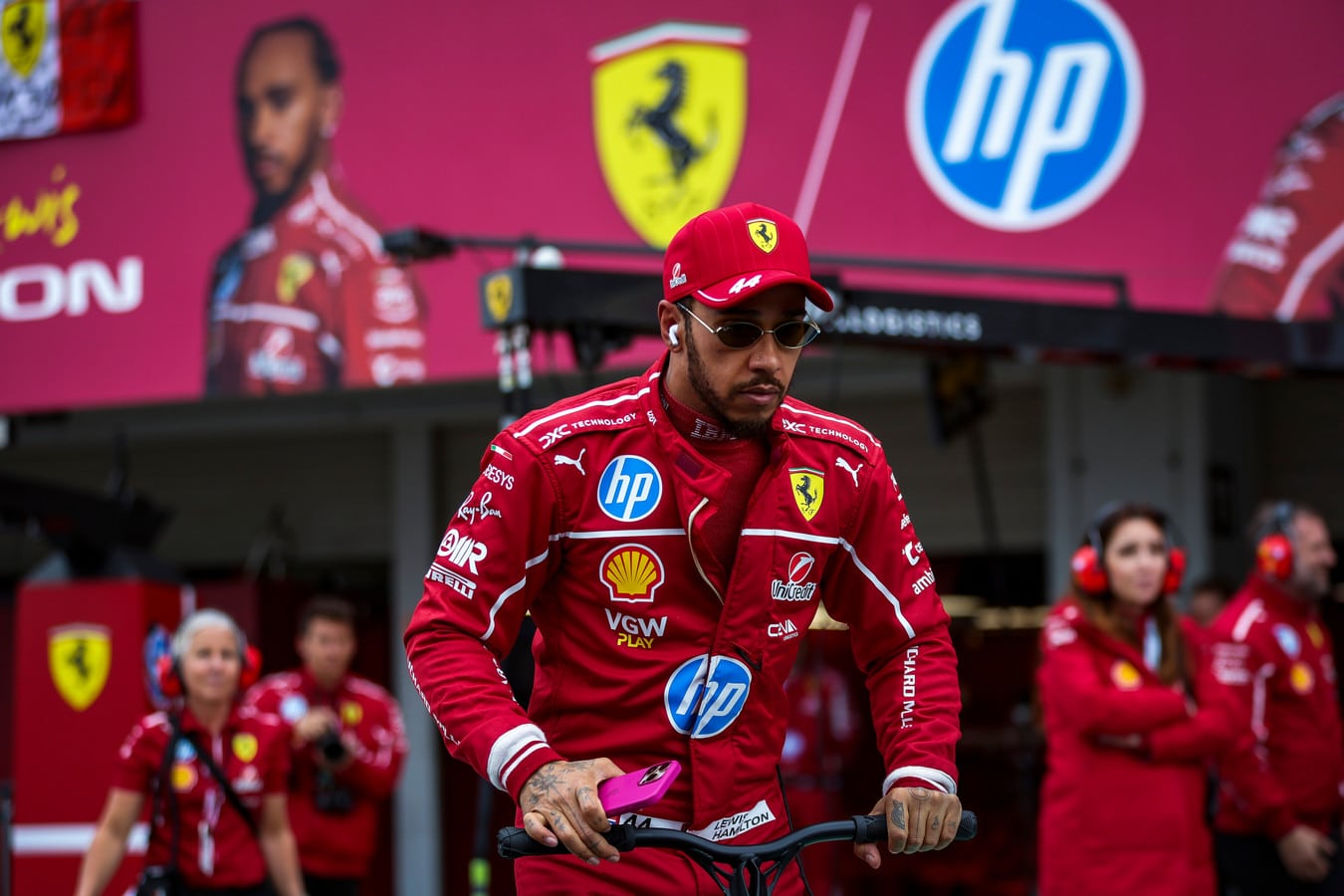Triathlete Jess Learmonth won team relay gold at the Tokyo 2020 Olympics before multiple injuries and pregnancy derailed her bid for Paris 2024 selection.Learmonth finally returned to elite racing in Singapore this month after almost three years away for the season-opener of the T100 Triathlon World Tour (consisting of a 2km swim, 80km bike, and 18km run). She finished 13th despite clocking the fastest times in the swim and on the bike.
The 36-year-old’s T100 campaign continues in San Francisco on 31 May with a new motivation and perspective after becoming a mother to 19-month-old son Frederick.if(window.adverts) { window.

adverts.addToArray({"pos": "inread-hb-ros-inews"}); }“There’s more at stake,” Learmonth tells The i Paper. “Before it was all on me, but now I rely on family and friends to support me and help me be dedicated and succeed.
But being a mum, it is the best thing ever. I have absolutely loved it.”#color-context-related-article-3593097 {--inews-color-primary: #8BC419;--inews-color-secondary: #F6FBED;--inews-color-tertiary: #8BC419;} Read Next square OLYMPICS .
inews__post__label__big-reads{background-color: #0a0a0a;color: #ffffff;}Big ReadThe Olympics faces an 'existential threat' in Trump and Putin's new world orderRead MoreLearmonth’s absence from the sport started after a nearly “career-ending” hip injury in 2022, and during the final stages of a six-month recovery, she unexpectedly fell pregnant in 2023. “Obviously, we were delighted, but it was bad timing in my career,” Learmonth says. if(window.
adverts) { window.adverts.addToArray({"pos": "mpu_mobile_l1"}); }if(window.
adverts) { window.adverts.addToArray({"pos": "mpu_tablet_l1"}); }“I was almost back from injury, so to be pregnant, it was difficult to manage mentally.
”To keep her Paris 2024 hopes alive, she continued to train throughout her pregnancy, only taking two weeks off in total. Learmonth made headlines in 2024 after revealing she had sustained a calf injury during a training run at 38 weeks pregnant, just hours before giving birth.“It was the hottest day of the year, and it was barbaric, so I will always remember it, but I had no idea I would be giving birth that evening,” says Learmonth.
Jess Learmonth enjoying a bike while pregnant with son Frederick (Photo: Jess Learmonth)“But because I kept active, I had such a good pregnancy and labour, so I wouldn’t change the training; maybe I would change the timing, but I would not change the outcome.”Learmonth, who missed selection for the Olympic squad after continued injuries, insists: “Having a child is in no way negative on you and your performance. My body has impressed me more, and I feel like I am actually better post-Fred.
“I feel like the only hurdle you have when you’ve got a child is the logistics and the support.”if(window.adverts) { window.
adverts.addToArray({"pos": "mpu_mobile_l2"}); }if(window.adverts) { window.
adverts.addToArray({"pos": "mpu_tablet_l2"}); }In fact Learmonth is speaking after dropping off her son with his grandparents, before starting her second of three sessions of the day. At the height of her career, she trained 30 hours a week but now manages to fit in only half of that.
“I’ve gone from swimming the most in the squad to only three times a week,” Learmonth adds. “But it has amazed me how you can get similar results by doing half the amount of training.Learmonth celebrating after a race with newborn Frederick (Photo: Jess Learmonth)The benefits of lower volumes of aerobic-based training are shown in a 2025 Sports Med report on male athletes, which showed how it improved maximal oxygen uptake by 3.
8 per cent and enhanced performance by 1.6 per cent. Yet Learmonth points out “there is literally no research into females, pregnancy and training,” mentioning only one study about not running for 12 weeks post-birth.
With nine mothers competing for Team GB in Paris 2024, including rower Helen Glover and cyclist Katy Marchant, the idea of women returning to elite-level sport after birth is becoming more frequent – though Learmonth believes there is still more to be done for athletes who want to plan to have children earlier in their careers.if(window.adverts) { window.
adverts.addToArray({"pos": "mpu_mobile_l3"}); }if(window.adverts) { window.
adverts.addToArray({"pos": "mpu_tablet_l3"}); }#color-context-related-article-3202997 {--inews-color-primary: #8BC419;--inews-color-secondary: #F6FBED;--inews-color-tertiary: #8BC419;} Read Next square OLYMPICS .inews__post__label__sports-analysis{background-color: #8bc419;color: #ffffff;}Sport Analysis'For all mums': The powerful message sent by Team GB's Olympic medallistsRead More“Before I gave birth, I was doing my own research,” she says.
“If I knew someone with a kid, I’d ask them to tell me about their birth and how it affected them, to find out what mine was going to be like. “Without seeing the athletes before me do it, I would have been a bit more anxious about returning, but it never crossed my mind that I wouldn’t be able to get back to where I was. “I hope I have inspired the younger generation to do what they want.
If they want to have kids young, I would love that they can do that. “I hope they know that their career can be long.”.
Sports

I started a family after winning Olympic gold – it’s made me a better athlete

Olympic gold medalist Jess Learmonth tells The i Paper about the challenges of motherhood and returning to racing after three years away











